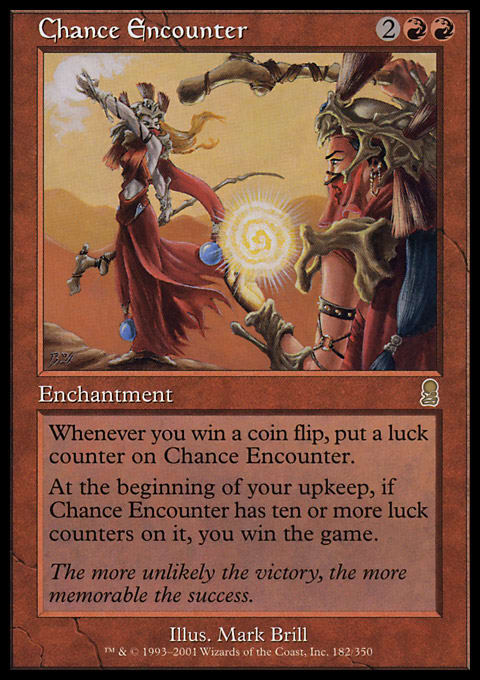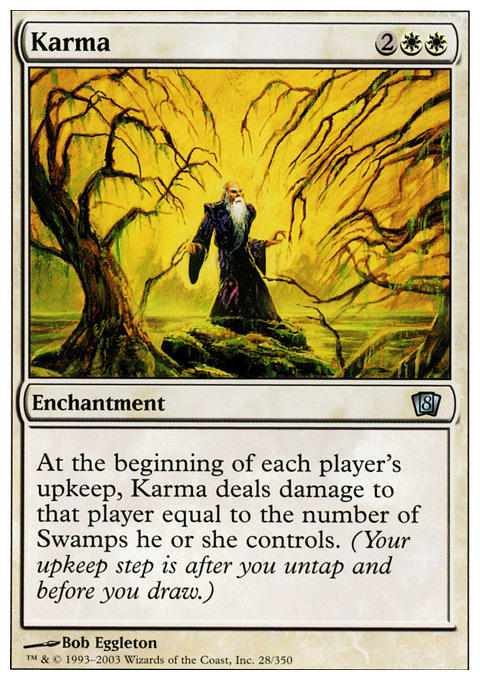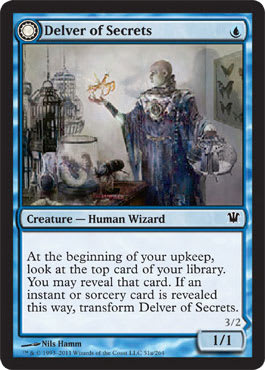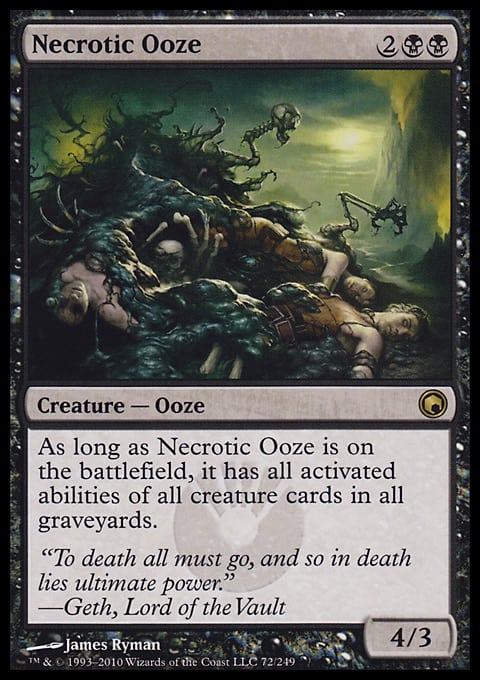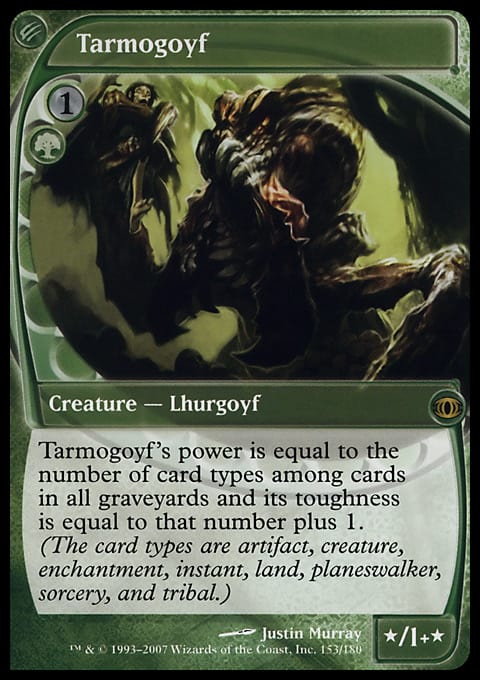Every once and again, a Magic writer will mention she or he doesn’t understand Commander (or sometimes general multiplayer) with its unwritten rules about not killing people. Adam Styborski wrote about issues he witnessed at Grand Prix: Baltimore regarding these principles about six months ago and wound up taking flak in the comments.
On the side of those who don’t understand these unwritten rules and on the side of those who do, there are plenty of smart, reasonable, articulate people. So where does this failure to understand come from? When this occurs in other subjects, it’s often less about the information conveyed and more about how it is conveyed—or, as I suspect in this case, when it is conveyed. Specifically, stuff about multiplayer’s unwritten rules/social contract/whatever tends to arise as a reactionary, defensive measure, a response to something that violated it. Just as saying, “Be nice,” to the school bully mid-fight isn’t going to accomplish much, so invoking abstract ideas of fairness isn’t a proper defense to when a person feels those ideas have been violated, especially if that person lost. This is my attempt to explain multiplayer fairness without an initial provocation so that it isn’t tied up with sore losing, sour grapes, or the like.
What Makes Multiplayer Games Different?
It was a stronger theme of my work last year than this year, but it’s especially important here:
For n players, the odds of a specific player winning a non-team game is 1/n.
This truth is incredibly important to how someone reacts to a game. In a duel, your abstract odds of winning are 1 : 2, so becoming a better player and making better decks means you start winning a majority of the time. Your feel-good moments outnumber your feel-bad moments. You receive more confirmation out of winning than you miss from losing. It’s a simple, clean input and output.
In a four-player game, each player has a 1 : 4 chance of winning. If you’re used to duels, this is jarring. If you measure success by winning, you won’t be winning a majority of the time, and you’ll end up wondering what went wrong.
And optimal deck performance isn’t nearly as correlated to winning in multiplayer as it is in duels. There’s a definite correlation—good decks will still outperform bad decks—but it isn’t as strong. Having twice the players doesn’t mean twice the variables; multiple deck interactions make the growth in variables exponential more than linear. Moreover, the fight in multiplayer normally coheres around who gets going first, meaning that the best deck often is the first one attacked, not because of bullying or unwritten rules, but because that deck is the first opponent to show up. Indirectly, Archenemy games demonstrate this well; regular multiplayer often is a game of Archenemy in which a different player is the archenemy at different times. If one player’s left alone for too long, whether for bringing the weakest deck or for craftily hiding the deck plan, that player might sneak a win just for being the last one standing.
This points generally to some other important ideas about multiplayer:
The number of wins over a set of games is fixed and zero-sum; and
Players in a multiplayer group will over time reach individual win equilibrium.
What do I mean by “individual win equilibrium”? It would be convenient if either Bruce Richard or I had a first name starting with C, as then the Kitchen Table Tuesday crew (even as Bruce moved to Friday) would have initials starting with A-B-C-D. I’ll make it happen anyway. Suppose Abe, Brandon (me), bruCe, and Daryl get together regularly for games. Before we’ve played anything out, our win percentage by the odds will be:
| Abe | 25% |
| Brandon | 25% |
| bruCe | 25% |
| Daryl | 25% |
If we play ten games together, binomial distribution says we’re most likely each to win two or three games. This is no surprise, although there are still 5% odds that I’ll win zero games, 5% odds I’ll win five games, and even a 1.6% chance I’ll win six games. But let’s say Daryl brings a ton of killer black decks and we were unprepared. He wins seven games and leaves the others with one win apiece. Over ten games, the balance of our group is now:
| Abe | 10% |
| Brandon | 10% |
| bruCe | 10% |
| Daryl | 70% |
If this quartet likes each other and wants to play together, but despite our best efforts, Daryl keeps winning, Daryl might have some input as well. If he doesn’t want to leave the group, maybe he builds decks with higher-variance cards. Maybe he doesn’t bring out his best decks all the time. That also will restore individual win equilibrium. Ultimately, any reactions to an uneven win distribution automatically will correct some of the situation. The zero-sum nature of game wins means that groups intending to stay together will balance wins out over time with any normal effort.
But why care about any of this at all? If it balances naturally, why invoke any principles or cry foul at anything? At its core, it’s a matter of resources.
What Makes Multiplayer Players Different?
Magic is the same as any hobby in that it has a number of resources going into it. There’s normally a money resource going into it, though some people inherit cards from somebody else, some are fine with a couple decks out of an introductory product, and so on. There’s a time resource, as Magic takes time by itself while taking away from time on other endeavors (another zero-sum thing). These things we’re used to discussing. But with multiplayer groups, there’s a people resource. And it’s the people resource that drives every concept of fairness.
At Grand Prix: Seattle-Tacoma, there were eleven hundred sixty players. It’s over eighteen hundred this weekend for Boston. With the regular tournament and numerous side events, a Grand Prix has more games and more players for those games than any one person needs. There are money limits and some time limits, but players are, for the situation, a limitless resource. In any tournament, your opponents are picked for you. You don’t have to treat people as a resource whatsoever—it’s irrelevant. No matter how the last match went, no matter how cordial you were or weren’t, you don’t face that opponent again (ordinarily, anyway—you might face a player again if you make Day 2, as I faced another Brandon in Round 6 of Day 1 and then in both Drafts of Day 2). For any store of decent size, it’s the same principle—Friday Night Magic happens automatically, so you don’t need to keep specific people if you don’t want to.
Pro Tour and Pro Tour Qualifier testing groups, despite looking as though they’d have multiplayer group interactions, can avoid thinking of people as a resource if they want to. The most valuable thing they have is normally time. If you’re on Pat Chapin’s testing team and you don’t want to be there, guess what? You’re easily replaceable. If Pat Chapin doesn’t want to be on his current testing team, he can leave and find several more people to test with. Although it’s harder for him to find players of sufficient caliber to work with because there are fewer of them, there are still more quality playtest partners than he needs at any given time. Relative to his situation, playtest partners are a limitless resource. If he chooses to work it out with the group he’s in, that’s more a reflection of his limited time—it’s two days before the Pro Tour, and it would take time to find a new group—than of limited players. Pro-level players will buy the cards they need and have enough good players to work with; they have sufficient money and people. Money’s the only big issue at events, and time’s the only big issue with pro players. Being nice, as Pat Chapin is, is useful, but it’s not imperative.
Here’s the part that matters for multiplayer-fairness rules: In a multiplayer group, the scarcest resource is people. Sometimes, time and money are scarce, but that isn’t the driving mechanism. In my group back in Alabama, we were meeting for five hours a week each on Friday and Sunday nights, with several other times we came together when we were bored. Most of us were college-age students. We had plenty of time. And we spent a good bit on Magic, since the majority of us were twenty-something nerds spending over ten hours a week playing the game.
Relative to what we wanted to accomplish, time was a limitless resource. Money was limited some, but not as much as it could have been. No, the main limitation was people. If the group disbanded, there wasn’t another group to go find. There was only one game store in town; it wasn’t the best game store one could imagine, and there weren’t always people looking for multiplayer games. The group was large enough to become two small groups if it needed to, but then play time would be much more dependent on who could show up when.
Consequently, there was a major emphasis on group health and fairness. Although sometimes it was cited as an abstraction, the reasons for caring were all practical: If this group goes away, there’s no one to play with. Once people are the scarcity, it’s important to fight for that resource. And if that means you scrap your infinite combo deck that annoys some people so much that they don’t want to show up and/or play with you, you scrap it. It’s not because someone whined or because your deck’s “broken”; it’s because you want and need to keep people. Magic financial columns are about maximizing your money resource; tournament reports, net decks, and format chatter are about maximizing your time resource (why test bad ideas when all these writers are saying they’re bad?); multiplayer fairness is about maximizing your people resource. If they’re your friends, you want to keep them for that reason, too, but even if they’re just people you play Magic with, you need them to keep playing.
What Makes Multiplayer Talk Different?
This is where things often break down. Because different types of Magic care about very different types of resources, conversations among those types tend not to make sense. For someone in a multiplayer group whose complaints about Commander tournaments are about deck fairness, they’re prioritizing the people resource they’re used to prioritizing. The Spikes who come back with lines such as, “It’s a big tournament—what did you expect?” aren’t used to prioritizing the people resource. And why would they? There’s not much point to their doing so. For what each group automatically values, their responses are correct. They’re both right for what they’re talking about. It’s all Magic, but each side of the discussion has invested very different things into it and therefore says very different things.
That can’t be fixed. Concerns about fairness are based on the people resource and therefore always will have their concerns relative to the people involved. Some people have ideas of fairness and brokenness—I have mine—but it only matters in terms of keeping people together. At the macro level, whining about fairness is an outgrowth of the people concern and not its own concern. Whining about Jace, the Mind Sculptor’s price during its time in Standard was an outgrowth of the money concern—cost as a barrier to play Standard—and not a concern of its own accord (if Jace were expensive but cheap decks beat up on it, it wouldn’t matter). General complaints are iterations of basic concerns that underlie every hobby investment.
Multiplayer fairness is just the loudest iteration of issues regarding playgroups. In the abstract, it’s nothing more than that. It isn’t about people being mean, unscrupulous, or antisocial. It’s about understanding that in many cases when a playgroup breaks up, there’s nothing to replace it. It’s about understanding that you just can’t go and find more players to show up on a Friday and play all manner of formats until midnight, that you have to accommodate the people in your group regardless of whether you share another person’s irritation—people are your scarcest resource. That’s all it is at the basic level.
If you’re reading this and you don’t play multiplayer, think about how you’d be annoyed if your favorite format became too expensive to play or all the big events were too far away for you to make it to. No matter the money or time you invested, you wouldn’t receive sufficient return to keep playing. No matter what a multiplayer enthusiast says, his or her concerns are from the same foundations—he or she is just prioritizing a different thing. That the concerns only are mentioned when something isn’t working right has made things murky over the issues, but it’s the same process as with any hobby: ensuring adequate return on your investment in it. But with multiplayer, a lot of that investment is people, whether or not the people realize it.
Conclusion
Playing multiplayer doesn’t automatically mean you don’t want to win. It doesn’t mean people agree not to kill each other, and it doesn’t mean certain cards never ever should be played. All it means is, should you wish to do it regularly, you have to prioritize the people you play with, and that means taking a few measures to make sure those people want to stay together. It’s a priority unique to multiplayer groups, as tournament players have no need of it, but that doesn’t make it less real. It isn’t an issue to bring up right after a sore loss or when you personally feel like something was unfair, but it is a real issue. And while the nature of the issue precludes universal solutions, each group needs to care or else it will stop being a group.
Fairness and sociability are matters of practicality, not dogma, and shouldn’t be talked about as dogma. But as practical concerns, they’re as real in Magic as they are in any group. Ultimately, it’s that simple, even if it only shows up in response to Armageddon or infinite mana. It’s about the resource of people. Nothing more, nothing less.













